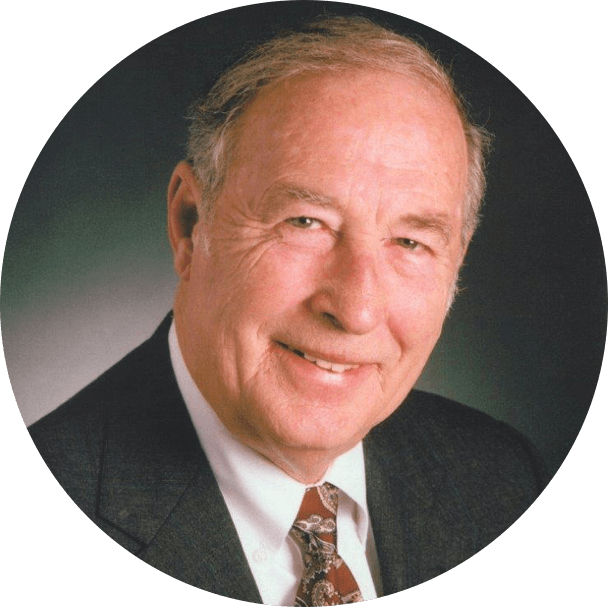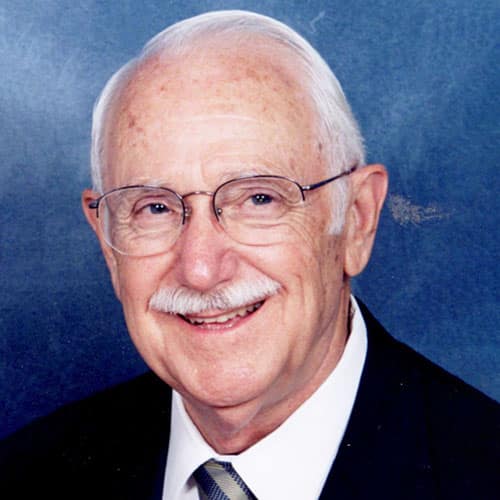Alumni & Community Awards
ECE recognizes outstanding alumni with the ECE Alumni Hall of Fame and the Outstanding Early Career Award, and the College of Engineering honors outstanding engineering graduates with the Distinguished Engineering Alumnus Award. We also recognize lasting service by members of the ECE community with the Distinguished Service Award.
Recognizing our Pack
With more than 16,000 ECE alumni, only a select number will be chosen as recipients of the ECE Alumni Awards, making these truly noteworthy distinctions.
Nominate
To nominate one of our ECE alumni for any of the ECE awards, complete the nomination form. Nominations are accepted year-round, with the cutoff for each year’s class on May 31.
ECE Alumni Hall of Fame
We have inducted 86 exemplary alumni into our Alumni Hall of Fame since its inception in 2015, celebrating the accomplishments of our outstanding graduates who use their education to excel in a profession, career, or service.
Recipients are alumni of NC State ECE, and demonstrate professional, entrepreneurial, or service achievements in their selected industry. Examples include, but not limited to:
-
Recognized by technical organizations at a high level (e.g. IEEE fellow).
-
A significant number of influential technical publications or patents in the ECE field.
-
A successful faculty member at a College or University, e.g. leadership in a national or international research center, distinguished faculty title, or university leadership position.
-
Founder of a successful business or organization.
-
Served or serves at the senior management level in a corporation.
-
Has participated or participates at a leadership level in a nationally recognized community service organization, e.g. United Way, Red Cross, or Habitat for Humanity.
-
Recognized by a national community organization for their impact.

Rizwan Bashirullah
Inducted in 2021

Gregory L. Booth
Inducted in 2016

Earl “Skip” Booth III
Inducted in 2016

Greg E. Bottomley
Inducted in 2015

Laura J. Bottomley
Inducted in 2015

Tom Bradicich
Inducted in 2016

Charles L. Britt, Jr.
Inducted in 2016

April S. Brown
Inducted in 2017

P. Mark Buff III
Inducted in 2016
ECE Outstanding Early Career Award
The Outstanding Early Career Award is presented to one alum each year who has attained significant achievement early in their career and who shows promise of further contributions to the field.
Recipients are alumni of NC State ECE, and demonstrate professional, entrepreneurial, or service achievements in their selected industry. Examples include, but not limited to:
- Founder of a promising startup or business
- A tenured professor at a College or University
- Serving at a management level at a business or organization
- Recognition from a technical organization (such as IEEE)
This award is given to those that are 40 years old or younger or graduated with a degree from NC State ECE within the past 10 years.

Shubhi Asthana
Inducted in 2023Shubhi Asthana works as a Senior Research Software Engineer at IBM Research. As an exemplary researcher, she has demonstrated outstanding, impactful, and sustained contributions towards research and leadership in the field of Data Engineering and Services Computing. Shubhi has successfully led projects in financial services computing and analytics with business impact. Currently, she is leading the efforts in Identifying Objectionable Personally Identifying Information (OPII) for the IBM’s premier machine learning platform watsonx.ai.
Shubhi’s innovative work yielded to IEEE Senior member elevation, with 40+ publications in top-tier research conferences and meetups. Some of her work was published in patent format and filed by USPTO, with upto 20+ patents. Her patents range in topics like services research, optimization methods for handling financial and sales services data, building innovative algorithms, and performance related algorithms.
She has tirelessly worked to support Women in Services. For example, she co-organized the IEEE Women in Services Computing symposia, collocated with the IEEE Services from 2021 to 2023. Through her efforts, 30+ students passionate towards higher studies in STEM received scholarships through IEEE Services. She serves as the industry liaison officer for Women in OR/MS since 2022. She has organized technical talks at INFORMS Business Analytics conference. For her work, Shubhi has been recognized with research and industry awards.

Ioannis Papapanagiotou
Inducted in 2022Ioannis Papapanagiotou is a Director of Engineering of the Blockchain Platform at Gemini. He received the MSc & Ph.D. degrees in Computer Engineering and Operations Research from NC State University. As a graduate student, Ioannis received the IBM Ph.D. Fellowship and Academy of Athens Ph.D. Fellowship for his research, and best paper awards in the IEEE Globecom 2007 and the IEEE CAMAD 2010 conferences. He helped rebuild the ECE Graduate Student Association and assisted in establishing our online collaboration program with the University of North Carolina at Asheville.
Ioannis has obtained a wide range of experiences in the software industry and academia. He has built organizations and systems at a large scale (10 Billions operations per day, Exabytes of data) serving hundreds of millions of users as a senior manager at Snowflake and at Netflix. He has served in the faculty ranks of Purdue University (tenure-track) and was an engineer at IBM Software Group and IBM TJ Watson Research Center. At Purdue University, he has been awarded the NetApp faculty fellowship and established an Nvidia CUDA Research Center. Ioannis has authored several patents and research publications. Ioannis loves to contribute back to the ECE department. As a proud NC State alumni, he established, along with his wife Sofia, the “Papapanagiotou Ph.D. fellowship”, he is teaching graduate courses and advises ECE students.
William Easter Distinguished Service Award
The Distinguished Service Award, named for Professor Emeritus William Easter, recognizes and honors the lasting service and impact that members of the NC State ECE community have had on the department, its students, and mission.

William Easter
Inducted in 2022After a stellar high school performance, William Easter began his college education at The George Washington University in 1950. With the Korean War raging, he enlisted in the United States Air Force in July, 1951. After basic training he was assigned to radio operator school. As a part of this curriculum he received instruction in basic electronics, which led to a decision to study electrical engineering after his active service. He graduated with a B. S. degree in Electrical Engineering with high honors from North Carolina State College (University) in 1959. At this point he was awarded an NDEA fellowship for Ph.D. study in science of materials at Carnegie Institute of Technology (Carnegie Mellon University).
At Carnegie Tech, he completed the coursework and qualifying exams to begin research in what we now know as solid-state materials and devices. Unfortunately (or fortunately depending on one’s perspective) his efforts did not culminate with the Ph.D., and he left CIT with a Master of Science in Electrical Engineering.
In 1963, through the encouragement of Robert Lade, a colleague at CIT who had been recruited to begin a solid-state research program at N.C. State , he joined the Electrical Engineering faculty as an instructor. During the first year, he assisted Dr. Lade in designing the first fabrication laboratory and teaching the first graduate course in the solid-state curriculum. Afterward, he was assigned to teaching the senior courses in electronics and communications, which at that point still concentrated on vacuum-tube technology. In the next year, he introduced transistor technology and began to emphasize design in the laboratory experiments rather than use the analytic approach common at the time.
After having served for several years on the Advisory Committee for the Engineering Operations Program, a curriculum combining basic engineering principles with business fundamentals, Easter was named director of the program in July, 1970. For the next ten years, he strengthened the E.O. curriculum and promoted the value of its graduates to industry recruiters, while continuing to teach in the in electrical courses.
In 1980, with a new department head in Electrical Engineering, he moved back into the department as associate head. In this position he was responsible for the undergraduate program, managing the teaching schedule for all E.E. courses, assigning the graduate teaching assistants their duties, moving the department to a centralized advising system and representing the department on the Engineering College and University Scholarship and Course and Curriculum Committees. He was also elected to represent the Engineering College on the University Faculty Senate, serving one year as secretary. During this phase of his career, he also served for 12 years on the N.C. State Board of Examiners of Electrical Contractors, having been appointed by Governors James Martin and James Hunt. For eight of these years he was elected by the Board as chairman.
During his years as associate department head, he continued to push for a greater design emphases in the undergraduate curriculum, to culminate in a required senior design project. After a proposal was made to add computer engineering as a second curriculum, he supported the effort against resistance from the more conservative faculty members and argued for its approval in the College and University Course and Curriculum Committees.
In 1991, Easter resigned from his administrative position and returned to full-time teaching in the electronics circuits course he had started with. In order to give his students as near an industry experience as possible in the academic environment, he had the students participate in a semester-long design project for the laboratory portion of the course. A fitting end to his thirty-one years on the Electrical and Computer Engineering Faculty.

Larry Monteith
Inducted in 2023A native of Bryson City, North Carolina, Larry Monteith spent four years as an aviation electronics technician in the US Navy, and then enrolled in North Carolina State College of Agriculture and Engineering in 1956 and graduated with a Bachelor of Science degree in Electrical Engineering in 1960. He eventually joined the faculty at NC State in 1968 as an associate professor in the Solid State Micro-electronics division of the Department of Electrical Engineering.
Monteith was active in developing research, graduate programs, teaching and extension programs when appointed in 1974 as head of the department and then in 1978 as the dean of engineering. After a decade as a dean, Monteith accepted the position of interim and then chancellor in 1988 and 1989 before retiring in 1998 after thirty years of service when the efforts of faculty throughout the entire university improved undergraduate, graduate, research and programs that resulted in substantial growth and prominence for the institution.
He was also an early champion of Centennial Campus, including putting forward the initial concept as Dean—and ensuring the funding—of the Engineering Graduate Research Center which opened in 1997. This would later be renamed as a fitting tribune to his impact on engineering education as the Monteith Research Center and is at the forefront of electrical and computer engineering research.
Chancellor Monteith’s leadership in the department, college, and university were instrumental in making NC State an international leader and a powerhouse in the state.
ECE Newsletter
The ECE Newsletter is sent out monthly to keep alumni and friends up-to-date with the most current goings-on of the Department of Electrical and Computer Engineering.
It includes major ECE news stories, upcoming events, and information on how to support the department. There are no restrictions on who can sign up for the ECE Newsletter and you can unsubscribe at any time.



